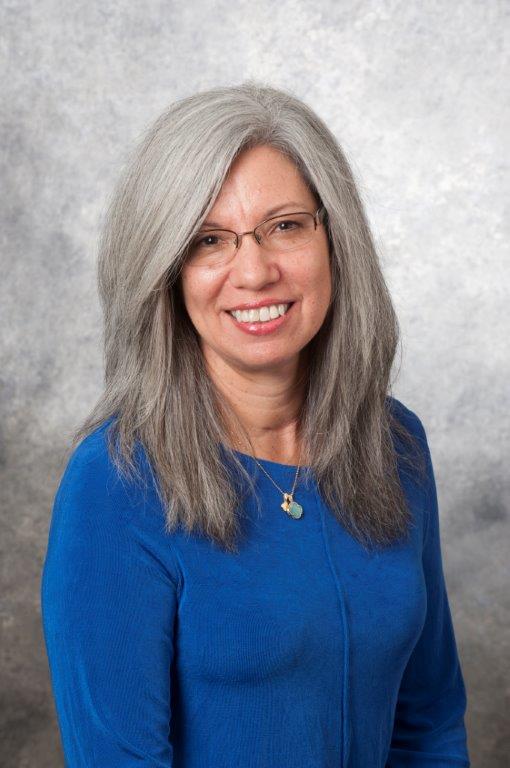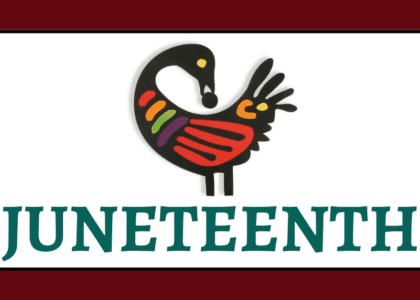By Isabel N. Docampo
As a bi-cultural woman, joy and tears have paved my journey to embrace living in the liminal space. The fact that I can begin to share bits of this journey is a testament to God’s grace. I choose to make my first foray into sharing what it is like to live in the “in-between,” to be “both-and,” but sometimes made to feel as “not-enough” with you, my Baptist faith community. Why am I choosing to share this with you now? Because of your commitment to racial equity and the faith fortitude you have shown in your willingness to re-imagine our inter-human relationships.
I am the daughter of Cuban parents, born and raised in the U.S., and my worldview has been shaped by my childhood community of Latin American immigrants in my Baptist church in New Orleans. My first language is Spanish. As far back as I can remember, the circle of my parents, siblings, and close relatives was where I felt the relief from the push/pull of two identities–where I feel I can be fully myself. Everywhere else I am negotiating identities. At my childhood church, the diversity of Latin American families taught me how to speak the Spanish necessary to address a Guatemalan, Nicaraguan, Salvadoran, Honduran, or Cuban. We, the children of these brave parents who fled civil wars, genocide and poverty in our respective countries—the fruit of colonization and empire building—were just as fluent in our various Spanish dialects, foods, and customs as we were in navigating English and American culture. Yet, at first glance when you meet me, this part of my bi-culturality is not visible. It is present, nonetheless. Just as colonization is present and has affected you my sisters and brothers of white and black pigmentation with whom I share this earth. I resonate so much with theologian Mayra Rivera1 when she says that the wounds of colonization and patriarchy precede our first greetings, for this is true. While these wounds have shaped us, they don’t need to define us. Our identity is that we are God’s beloved children from the first day of Creation.
I’d like to name a few gifts of being bi-cultural. First, fluidity—because I knew myself to be Cuban and American, I intuited that there was more than just one or the other. There was an “and”—there was more to explore about myself, the world and, most especially, about others. Fluidity of “both-and” made me at ease with letting go of a fixed or rigid border to define people. Second, fluency—exploring the terrain populated with others’ stories helped me discover that I could recognize the shared language of pain and hope. Third, perspective—living in the liminal space gives me perspective. It was a relief for me when I came to embrace that my identity is shaped and thrives in the liminal space. Liminal means “occupying a position at, or on both sides of, a boundary or threshold.”2 Ah! That is why I was always “processing” experiences. I was making sense of the multiple spaces I could move in. Ah! That is why I could only embrace a nuanced and evolving worldview and had an aversion for dogmatic intransigence. I finally embraced this wrestling as the gift of perspective.
The challenges of being bi-cultural are very real. The first one that I stumbled upon has happened often since. When I went to college I was one of two Latinas, my friend from church and me. While I have many good memories of those years, there were some who could only see us as exotic and when they did so they heaped an untenable, rigid identity upon us that we were unprepared and unwilling to accept. Another challenge is the subtle pushback of when I am told that I am not a ‘real’ Cuban or a ‘real’ American because I lack rigid identity boundaries. A more difficult challenge to navigate is that of being singled out as the “good” or approachable Latina. It puts extra pressure to suppress one of my identities overtheotherinordertofitinsociallyandprofessionally. Ittookmeyearstorealizehow much being singled out as the “good” Latina silenced me and how much of my Latina-ness I had been willing to sacrifice—how much internalized colonization was at play within me.
These experiences have helped me to come to this self-understanding: I am a hybrid person living in the liminal space, and there is rich goodness in that. I am Her/His/Their beloved daughter, created in Her/His/Their Image, and that is enough.
Liminal living in a world that likes clear boundaries and that demands a declaration of blind loyalty is difficult. My hybrid identity is formed by the liminal space, the threshold, between different cultures and affords me the opportunity to thrive when I step into the different spaces. I am comfortable appropriately evolving as I enter into relationships in these spaces. They help me know what to embrace as good and what as toxic to let go.
As I begin to truly embrace my identity as gift, I am also gathering the courage to unpack and grieve properly the stored-away microaggressions, with the help of a soul guide. Moments when I have been shunned for not “being loyal to the group,” for “daring to offer critique,” for not being who and what they needed me to be. Living at the threshold helped me process in those moments the fear that was driving those hurtful words and how important it was and still is, for me to use my liminal living insights to focus on the relationships. This is the Achilles heel of being bi-cultural, living in liminal spaces, for it may cause me to silence myself, or to forgive silently, and to not speak my hurts. When I do not speak I create distance, and worse, I keep both of us from growth. I keep others as “others.” I do not see my role to teach others to become self-aware about their unconscious bias, but rather that I extend an invitation to be in authentic relationships by speaking my truth. When I fail to do so, I have come to see this as a lack of courage and a bit of arrogance on my part. I am selling others short and do not give them an opportunity to work together with me for authentic relationships. I am learning to be courageous in trusting others more, and I confess my own arrogance and lack of courage when I do not.
As I said at the start, my ability to share this with you is a testament to God’s grace. Many of you in my Alliance family are part of that grace, for you and I have had authentic relationships where we have encountered God’s love binding us to one another. You have been the joy of this journey.
By sharing my story, I hope it gives us, as a community, a bit more insight and a bit more courage to help one another tend to the wounds that create unnecessary barriers. Instead, my hope is that we can help one another heal by allowing ourselves to be authentically true to who we are as beloved, holy people even in our flawed messiness, and by doing so that we may encounter God over and over again as we widen our circles of justice and mercy for all.
1 Rivera, Mayra. The Touch of Transcendence : a Postcolonial Theology of God. 1st ed. Louisville: Westminster John Knox Press, 2007. Print.
2 Abate, Frank R., and Elizabeth. Jewell. The New Oxford American Dictionary. New York: Oxford University Press, 2001. Print.

Isabel Docampo is a Cuban-American, ordained in 1985 at Broadmoor Baptist Church in Baton Rouge, LA, and endorsed by American Baptist Churches USA in 1991. She co-founded the Dallas Women’s Interfaith Dialogue Group, and is currently serving on the board of Nevertheless She Preached and has participated in the good work of Equity for Women in the Church. Previously, she served on the steering committees of The Association of Theological Field Education and the Southern Baptist Women in Ministry Committee, and on the boards of the Baptist Peace Fellowship of North America, the Alliance of Baptists, founding President of the Greater Baton Rouge Food Bank, the Dallas Peace and Justice Center, and the Workers’ Rights Board of the North Texas Jobs with Justice affiliate.




Recent Comments